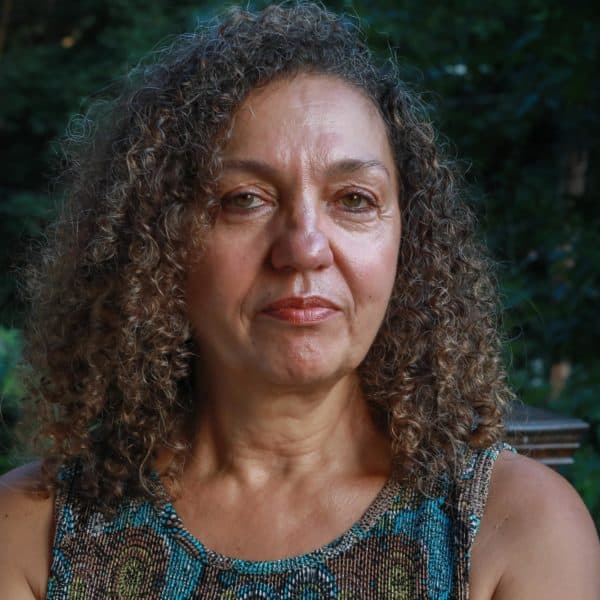Advertisement
Commentary
I work with families in the grips of radicalization. We need each other to prevent extremism

As our society is pulled further to extremes, more American families are learning that a loved one committing the unthinkable might not be a niche problem.
The Crooks family, whose son Thomas attempted to assassinate former President Donald Trump last Saturday, learned that unfortunate lesson too late.
What happened to the Crooks is painfully familiar to the Bledsoe family, who founded Parents for Peace, the organization I lead that offers confidential support and resources to families whose loved ones may be on a path to extremism. After their son committed a deadly act of terror, the Bledsoes wanted to raise awareness about what had happened and spare other families the pain and shame they suffered.
Over the past decade, we've assisted hundreds of families in North America in navigating the radical shifts in their children's beliefs and behavior under the influence of extremist ideologies. We don't profess to have solved the problem of extremism, but our work has demonstrated that raising awareness among key stakeholders, particularly families, is a pivotal step towards its prevention.
According to the U.S. Government Accountability Office, domestic terrorism-related investigations have increased by 357% over the past decade. White supremacy and Islamism dominate such cases – a fact also reflected in the calls to our helpline. But not every violent Islamist or white supremacist comes from a Muslim or white background. Many Islamists are white or Black. Similarly, an increasing number of white supremacists come from non-white backgrounds. And there is a growing threat posed by extremism from the far left. We also see that those radicalized independently online do not necessarily subscribe to a coherent ideology. Without wanting to sound alarmist, no matter what your politics or ethnicity, you cannot consider yourself immune to the rising tide of extremism.
... no matter what your politics or ethnicity, you cannot consider yourself immune to the rising tide of extremism.
And yet, many Americans still seem unaware that radicalization transcends racial, religious and political boundaries, targeting human vulnerabilities much like other public health concerns such as substance abuse or viral diseases.
We all have an innate desire for belonging, purpose, and control over our lives. We love a good story. We are all sensitive to what we perceive as wrongs and injustices, and we're never as sensitive to them as when we are young or struggling.
When we are young, unhappy or isolated, our minds are most vulnerable to being hijacked by emotionally powerful narratives that provide quick relief. Thanks to the Internet, social media and hyper-polarized environment, such narratives have never been more readily available to vulnerable minds.
Ease of access to extreme content comes hand in hand with increased demand for it. Gen Z already feels unhappy and lonely. As our young people struggle to fulfill their human needs for connection, belonging and purpose in the physical world, they will find extreme movements online increasingly appealing. Given that Gen Z is only coming of age now, it might be too soon to see the full implications of that development reflected in extremist actions, which is why correcting our dangerous, divisive habits has never been more urgent. It's up to us to decide whether we continue down the same dark path that brought us here or turn this into a moment of realization about what is truly at stake.
Advertisement
... when we embrace a culture of victimhood instead of resilience, we instill in our children habits of mind that can easily exploited by extremist narratives.
It is not our children’s fault that they crave simple answers or are vulnerable to peer pressure. But when we adults embrace us v. them against our fellow citizens, and when we embrace a culture of victimhood instead of resilience, we instill in our children habits of mind that can be easily exploited by extremist narratives.
We know little about Thomas Matthew Crooks or how he was radicalized. But suppose his parents had called our helpline when they first noticed the warning signs. In that case, we might have helped them address the grievances that drove him. We would have coached his parents to develop a toolbox for approaching their son. This would involve encouraging quality time together, listening compassionately without debating and asking open-ended questions. We would have advised them to guard his media exposure and, when necessary, connect them with external resources like mental health experts. We would also invite them to participate in online peer support group sessions with other helpline families, ensuring they know they are not alone and can learn from others' experiences.
Our call to action is clear and urgent: Every American family should know that preventing the unthinkable is not just a distant hope, but a tangible reality. We can exist in a world that fosters dialogue and understanding, and it's within our power to recognize that extremism thrives where communication and empathy have broken down. Let's make this a reality.
A society more resilient against radicalization is possible, but we need each other to make that happen.
Editor’s note: If you know someone struggling with extremism, call the Parents For Peace helpline: 1-844-49-PEACE
